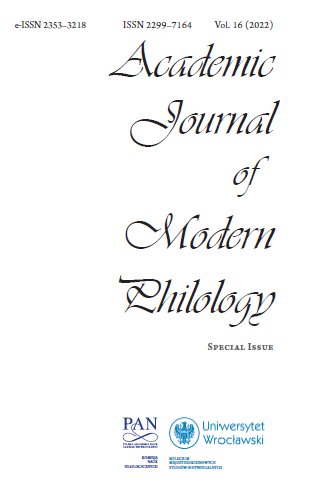Von unsichtbarer Hand – Germanistik im Wandel der Zeit
By an Invisible Hand - German Studies through the Ages
Author(s): Ellen TichySubject(s): Language acquisition, Sociolinguistics, Higher Education , History of Education, Demography and human biology
Published by: Komisja Nauk Filologicznych Oddziału Polskiej Akademii Nauk we Wrocławiu
Keywords: Curricula of German Studies courses; core competencies; German Studies; Central Eastern Europe; labor market; demographic change; historical change;
Summary/Abstract: The article addresses the development of curricula for German study programs in Central Eastern European Countries over the past 70 years, from the post-war period to the present. These are shaped by social framework conditions and historical factors, such as the end of the war in 1945, and the years directly following, membership of the so-called communist Eastern Bloc, and membership in the EU in 2004 and 2007. The political changes of 1989/1990 marked one of the most important milestones; a period began in which western languages including the German language flourished in German departments; only with demographic change has enrolment dropped rapidly since the turn of the millennium. Already in the first decade of reunification, German institutes “lost” their graduates to careers that were not oriented towards the humanities, a phenomenon dominated by international companies with business contacts in German-speaking countries. Today, the majority of universities and German studies institutes are reacting to the pragmatic demands of the labor market and are modifying their range of courses, even if this is at the expense of traditional curricular content.
Journal: Academic Journal of Modern Philology
- Issue Year: 2022
- Issue No: 16
- Page Range: 267-276
- Page Count: 10
- Language: German

